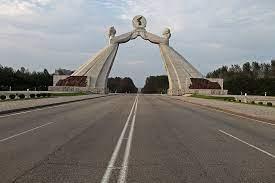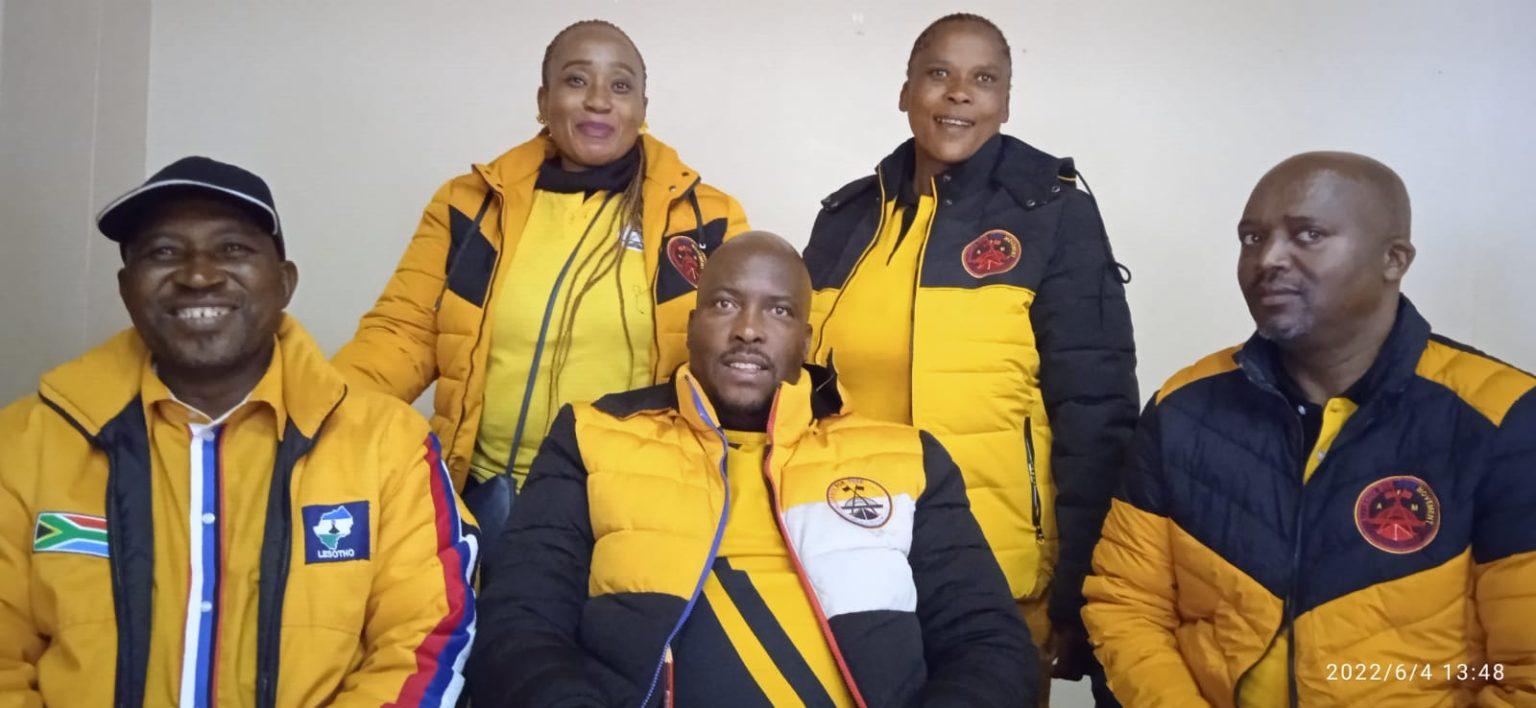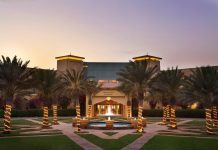Africa-Press – Lesotho. KORO-KORO – FOR decades, the question of Lesotho being part of South Africa has stubbornly refused to go away. As the country readies for the 2022 general elections, the leader of the Alliance For Free Movement (AFM), Tšoanelo Ramakeoane, is reigniting the contentious and sometimes divisive issue.
Ramakeoane, who grew up believing in the Basutoland Congress Party (BCP) doctrine of claiming Lesotho’s annexed territories, now says in his party manifesto Lesotho should join South Africa.
The former MP for the Lesotho Congress for Democracy (LCD), which carried forward the BCP’s philosophy of Basotho’s right to Free State and other parts of South Africa, is not a new face in the politics of this country.
His involvement in political affairs started when he enrolled for tertiary education in 2002. “Initially, I began developing an interest in politics following the BCP, around the time when the LCD was about to split from it (in 1997),” Ramakeoane said.
“Having been born in Tsoelike, I was always attending constituency gatherings organised by the party. It was only in 2002 when I became fully engaged in politics at the National University of Lesotho,” he said.
Ramakeoane assumed a leadership role and spearheaded, with other comrades, the formation of the university congress parties’ movement named LEVOSA. Later he became the LCD national youth league leader.
He became an MP between 2012 and 2015 on the LCD ticket. As splits continued ravishing the LCD, Ramakeoane aligned with the party’s factions. Ramakeoane eventually defected together with the party’s secretary general to found the Movement for Economic Change (MEC) in 2017.
Again in the MEC, differences led to squabbles that resulted in him forming a new political party, the AFM in 2020. He said what triggered the formation of AFM was his bid to fix the country’s economy through joining South Africa.
“I joined politics of this country optimistic that I would effect change and enhance the general livelihood of Basotho. But it wasn’t to be as a result of circumstances beyond the country’s control,” he said.
“I have been in the system and learned that it’s impossible for Lesotho to attain true economic prosperity and liberty if it’s not part of South Africa.
” Ramakeoane says what is happening on the ground “are false politics and giving people wrong hope that Lesotho can make it on its own”.
Ramakeoane states that “the only honest answer” to Lesotho’s problems is in the hands of the AFM “as we seek to give Lesotho everlasting prosperity by making it part of South Africa”.
The AFM, he said, is formed by people of different political persuasions, including those who have been neutral in politics. “Upon realisation that the current landscape of politics in the country is fruitless, we came from diverse backgrounds and formed the AFM.
Ramakeoane defected from the MEC, his deputy is from the Democratic Congress (DC), the secretary general is from the MEC also the spokesperson is from the BCP and the deputy spokesman is from the All Basotho Convention (ABC).
The majority of the party’s followers are migrant workers who are based in South Africa and the party has committees in all provinces of South Africa and in all of Lesotho districts, according to Ramakeoane.
“The only way to successfully execute the mission (of joining South Africa) was to form a political party strictly oriented for it,” he said.
The existence of Lesotho as part of South Africa can be traced back to pre-colonial Africa, he said. Lesotho had co-existed with other chiefdoms in South Africa, each existing as a separate nation, he said. However these chiefdoms enjoyed unlimited interaction as there were no actual borders separating them.
The rift that set Lesotho apart from these nations, which later formed the Union of South Africa, present day South Africa, only emerged under the colonial rule which was later reinforced by the Berlin Conference of 1884.
“The urge for joining South Africa is just a rebirth of what existed before,” he said.
Ramakeoane said even after the formation of South Africa as a unified state, there had been calls for Lesotho to join “but our leaders could not cooperate as it was not for their personal benefit”.
“We are now left suffocating in a locked country to the advantage of a few privileged individuals.
He said Basotho cannot access anything from the outside world without the involvement of South Africa, “which makes it absolutely ineffective to keep on operating as an independent state”.
“We are in a state of famine and economic instability due to being completely surrounded by another country.
He said the unification of Lesotho with South Africa would not only yield economic benefits but also restore Basotho social ties that were broken by colonialism.
“The population of Basotho in Lesotho is around two million.
But in a broader outlook there are more than six million Basotho in South Africa who are offsprings of Basotho conquered in the Napier and Aliwal North Treaty as well as those who migrated,” he said.
“We can no longer continue to remain a labour reserve for South Africa. We need to take part in being one with them for our social and economic benefit,” said Ramakeoane.
He said the South African government “has always been ready” for Lesotho to be incorporated into South Africa. “It’s just that Basotho have not made up their minds on this issue.
It’s our inflexible leaders who have been holding us back”. “It’s high time that this issue is addressed without fear or favour and Lesotho becomes part of South Africa. South Africa supports this move hundred percent but due to international relations, it cannot initiate the move. We have to.


For More News And Analysis About Lesotho Follow Africa-Press






